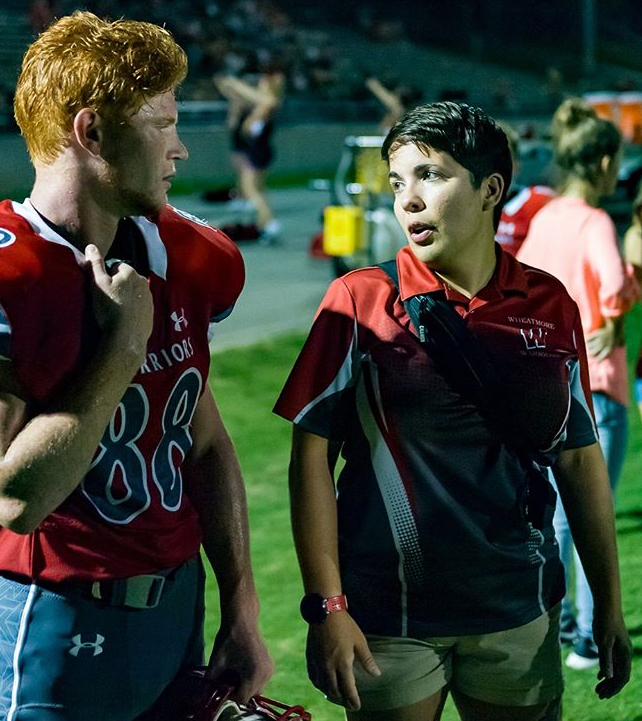
The NCHSAA is excited to recognize the role of Licensed Athletic Trainers (LATs) in high school athletics during National Athletic Training Month. This article is one of three in a group of interviews with LATs about their role and their reason for participating in athletic training in conjunction with the NFHS's #MyReasonWhy campaign. This interview is with Wheatmore High School Athletic Trainer Corrinne Rosquillo.
To find other interviews from the series, click here.
Why did you choose to be an athletic trainer at a secondary school?
If I’m being honest, I had no intention of being a secondary school athletic trainer when I graduated! I took the job because it was close to home and was full time, salaried, with benefits. I thought I would spend a year or two gaining experience and then move on to something “better,” but was pleasantly surprised with how much I loved it.
What personal and professional fulfillment do you receive from being an athletic trainer at a secondary school?
Professionally I have grown by leaps and bounds over the last four and a half years working in the secondary school setting. Multi-tasking is a MUST because you are the only person handling hundreds of athletes at one time. I’ve been able to streamline a lot of what I do, gain confidence in my skills, and develop professional relationships with my athletes, their parents, and the staff I work with at my high school. Personally, I have grown to love my job more with every passing season. I cannot believe how fortunate I am to be doing my dream job and getting paid for it! I go to work excited every day, and I’m never bored.
What advice do you have for someone considering a career as a secondary school athletic trainer?
For anyone considering working at a secondary school I say “don’t knock it until you try it!” Athletic trainers at the secondary level are just as skilled as those at any other level because they have to be creative problem-solvers. Also, you have to be a people person if you want to develop good relationships with the kids you work with. It’s an honor to serve as a role model to young people and I think secondary school athletic trainers are vital for setting the foundation (and future expectations) of athletes who go on to the college and professional levels out of high school.
In what way(s) does having a LAT impact cost containment as medical services for your student-athletes are provided on your campus?
I have probably saved parents hundreds, if not thousands of dollars by serving as a secondary school athletic trainer. By performing orthopedic evaluations I can save kids a trip to the doctor or ER, and many times I can perform in-house rehabilitation services that can save them trips to physical therapy or keep them from needing surgery. Also, being able to recognize what needs immediate referral saves athlete’s time waiting and can many times return to play sooner rather than later.
How are parents of the student-athletes benefited by having a LAT managing their child’s health care?
Parents and staff have told me on multiple occasions that it gives them greater peace of mind knowing that I am on the field watching out for their kid. Being trained in emergency management, I am prepared to handle anything and everything that might go wrong. Outside of saving them money going to the doctor or physical therapist, I act as a liaison for care, organizing appointments, communicating with doctors, coaches, and other personnel on how to best care for injured athletes. I can act as a representative for the athlete’s coaches, telling them whether the athlete needs to sit from practice, have modified practice, or return to play depending on where they are in their rehab. In the event of a concussion, I organize return to learn protocol for teachers and guidance counselors, returning athletes to the classroom before clearing them to begin a return to play progression. Best of all, I have been able to educate parents and others on what an athletic trainer can do and have demonstrated my worth day in and day out.
Are you compensated by the school system in which you work, the clinic through which you work or perhaps a hybrid of the two?
I am compensated by a private hospital system and the school I work at signs a contract with them, paying part of my salary to the hospital in exchange for services.


